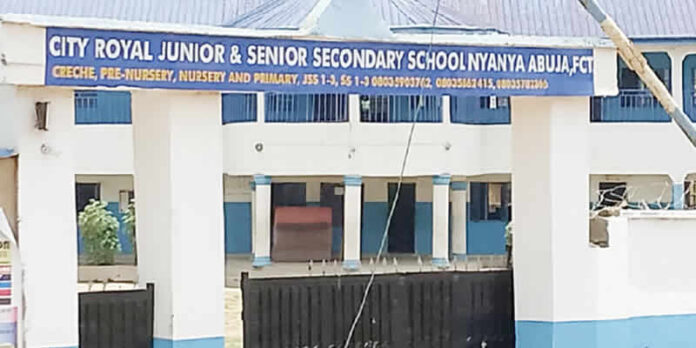ABUJA: In Abuja, Nigeria’s seat of power, makeshift schools are springing up across satellite towns, raising alarm among stakeholders who fear the trend could deepen the collapse of the education system.
What should ordinarily be centers of learning have become profit-driven ventures, often run by individuals with little or no training in school administration.
Investigations reveal that many of these institutions lack qualified teachers, proper facilities, and the most basic infrastructure required for learning.
Decades ago, public schools were the pride of Nigeria. Chief Obafemi Awolowo’s free and compulsory education policy in the Western Region transformed countless lives.
But the subsequent decline in governance led to falling standards that forced many parents to seek alternatives in private schools.
Initially, private schools offered better teaching methods, smaller class sizes, and improved learning outcomes.
But today, with education turning into a money-making business, mushroom schools now litter Abuja’s suburbs, targeting low-income families.
At Kurudu, Abuja Municipal Area Council, a three-bedroom apartment doubles as a school. A young woman teaches a group of children using no recognized curriculum.
She admitted she was not formally trained but claimed a love for teaching inspired her venture. Parents, desperate to keep their children engaged, pay fees without questioning standards.
Similarly, at Lifespring Academy in Kurudu, pupils use public fields for sports because the school lacks a playground. While the school boasts SSCE and NECO accreditation, residents say its manpower is grossly inadequate.
Education is turning into pure business. Standards are not the priority anymore,” a community member lamented.
Teachers in many of these school’s work under harsh conditions, juggling multiple subjects with poor pay. Investigations show some proprietors pay as little as ₦15,000–₦30,000 monthly. Science teachers sometimes earn slightly more, but even this falls far below living standards.
One mathematics teacher narrated how he taught five different subjects across junior and senior classes,yet earned meagre wages. They are only interested in their pockets, not the welfare of staff or the students,” he said.
At Graceland International Academy, Orozo, and Ivy Academy, Kpeyegi, poor pay and inadequate staffing remain recurring issues. At Potter’s Legacy Ville Academy along Karu/Orozo/Karshi road, pupils study in an unfenced building without security, leaving them vulnerable to criminal threats.
Some religious groups also run schools despite lacking capacity. In one case, an evangelist converted his three-bedroom apartment into a divinely inspired school, using church members as unpaid or underpaid teachers. Parents, lured by religious sentiment, still enrolled their children.
Mustapha Haruna, proprietor of Discovery International Academy, Suleja, warned that passion, not profit, should drive education. “If you are making money without impacting children’s lives, you have no business running a school, he said.
Teachers like Mr. Haruna Kebe argued that education and health must never be compromised.
People are converting residential buildings into schools just to make money. Without enforcement of standards, the future of Nigerian children is at risk, he cautioned.
Experts say unless the Federal Capital Territory Administration strengthens its inspectorate department and enforces minimum standards, Abuja may continue to see a proliferation of “business centres disguised as schools.
Education, they insist, is too vital to be left in the hands of unqualified hands. Without decisive action, the long-term consequences for Nigeria’s development could be dire.



